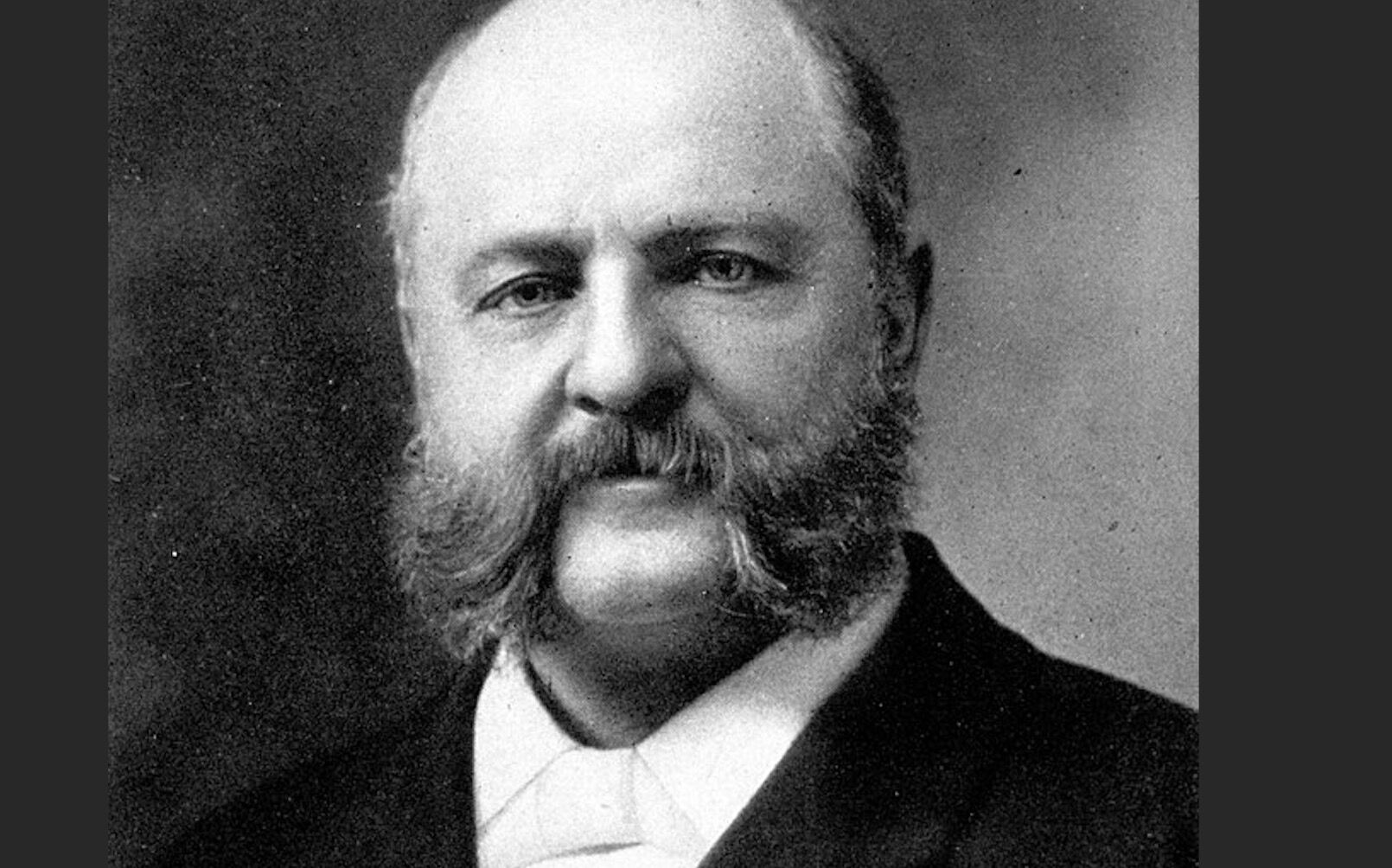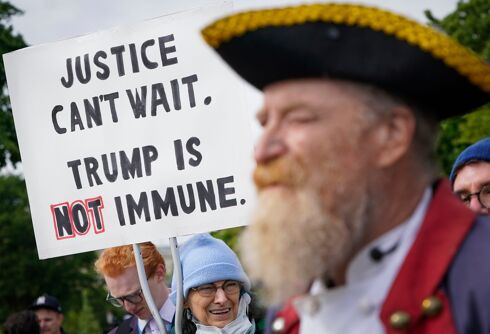The U.S. Supreme Court recently held hearings on whether states have the right to ban use of the medical abortion drug, mifepristone, through the mail. Mifepristone blocks a hormone called progesterone, which is necessary for the continuance of a pregnancy. The drug is used with another medicine called misoprostol to end a pregnancy through ten weeks gestation.
Currently, the dual treatment of mifepristone and misoprostol accounts for approximately 60% of abortions.
Related:
Abortion advocates say Trump is wholly responsible for Arizona decision & GOP will “regret” it
Republicans who have long voiced support for strict abortion laws are suddenly scrambling to distance themselves from Arizona’s near-total ban.
Several times during the trial, the justices, as well as the lawyers representing both sides of the argument, brought up the Comstock Act, which, along with its frequent legislative updates and amendments, has direct relevance to this case.
Dive deeper every day
Join our newsletter for thought-provoking commentary that goes beyond the surface of LGBTQ+ issues
Congress passed the Comstock Act in 1873 under the administration of President Ulysses S. Grant. It criminalized usage of the U.S. Postal Service to send any materials it considered “obscene, lewd, and/or lascivious,” all contraceptives and birth control information, sex education, “abortifacients” (drugs used to abort a pregnancy), sex toys, anatomy books, personal letters with sexual content or information, and any letters with information from the other categories.
The law was named after Anthony Comstock, a former U.S. Postal Inspector, member of the National Purity Party (a Eugenics organization), and founder of the New York Society for the Suppression of Vice.
Comstock based his work on his faith and dedicated his life to his interpretation of Christian morality. He stood opposed to so-called obscene literature, abortion, contraception, masturbation, gambling, prostitution, and patent medicine. He was also an outspoken critic of women’s suffrage.
His extensive program of censoring materials he considered obscene, including birth control advertised or sent by mail, has come to be called “comstockery” and “comstockism.”
As a young man, he fought for the Union in the American Civil War in the 17th Connecticut Infantry. On several occasions, he objected to his superiors about the profanity used by his fellow soldiers.
Following the war, he moved to New York City, where, among his jobs, he worked for the Young Men’s Christian Association (YMCA). He was appointed as a special agent of the U.S. Postal Service from 1873 until 1907.
It was during this time – after he had gained some power and with the strong support from church-based groups –that he campaigned for the cleansing of public morals. He was driven by his direct experience in what he perceived as a continual torrent of shameless debauchery coming from Union soldiers in his Civil War unit.
Comstock referred to himself as the “weeder in God’s garden.” With his police-level powers – including the right to carry a firearm – as a special agent for the postal department, he arrested several individuals for sending materials he did not personally approve of through the mail.
For example, Comstock arrested D. M. Bennett, founder and publisher of Truth Seeker, a radical freethought and reform American periodical, for publishing “An Open Letter to Jesus Christ.” Soon after, he charged Bennett with mailing a free-love pamphlet.
The state of New York convicted Bennett in a widely publicized trial and imprisoned him in the Albany Penitentiary.
D. M. Bennett and his wife, Mary Wicks Bennett, published their first tabloid edition of Truth Seeker. Its masthead outlined its purpose:
“Devoted to: science, morals, free thought, free discussions, liberalism, sexual equality, labor reform, progression, free education and whatever tends to elevate and emancipate the human race.”
“Opposed to: priestcraft, ecclesiasticism, dogmas, creeds, false theology, superstition, bigotry, ignorance, monopolies, aristocracies, privileged classes, tyranny, oppression, and everything that degrades or burdens mankind mentally or physically.”
Comstock wrote three books all on the topic of the oppression of vice: Frauds Exposed; or, How the People Are Deceived and Robbed, and Youth Corrupted; Traps for the Young; and Morals versus Art.
He also wrote several newspaper articles to promote his agenda and often lectured on college campuses. One of his followers was a young law student who was attracted to Comstock’s causes and methods. That student was named J. Edgar Hoover.
A precursor to today’s book bans
Anthony Comstock not only censored materials sent through the mail, but he also confiscated books and pamphlets and arrested those who distributed these “objectionable” materials in public.
He was said to have destroyed approximately 15 tons of books, 284,000 pounds of printing plates for “objectionable” material, and about 4 million pictures. He argued that “books are feeders for brothels.” He claimed with pride that he was responsible for 4,000 arrests and proclaimed that he drove 15 people to suicide in his “fight for the young.”
He lobbied the U.S. Congress to outlaw birth control and make it a federal crime. He traveled to D.C. in 1872 with his proposed “anti-obscenity” bill, which included a ban on contraceptives that he wrote himself.
Congress passed the new law on March 3, 1873, which later came to be known as the Comstock Act. The law classified contraceptives as “obscene” and “illicit.” If convicted, people faced extensive fines and imprisonment.
The United States has a long and sordid history of censorship of materials and information on topics of sexuality and reproduction and on investigating the hard and difficult legacy of oppression toward disenfranchised and marginalized communities.
Anthony Comstock and the laws he generated can be considered a primary antecedent to today’s book banning and censorship of important topics in our schools and libraries and the repression of anyone demanding the right to control their own bodies.
The fact that these laws, dating from 1873, still have currency today, specifically in testimony before the justices of the Supreme Court, says much about the nation’s regressive state.
In actuality, the laws themselves are truly obscene.
















The archaic Comstock laws were named for a man who also fueled the US obsession with book banning